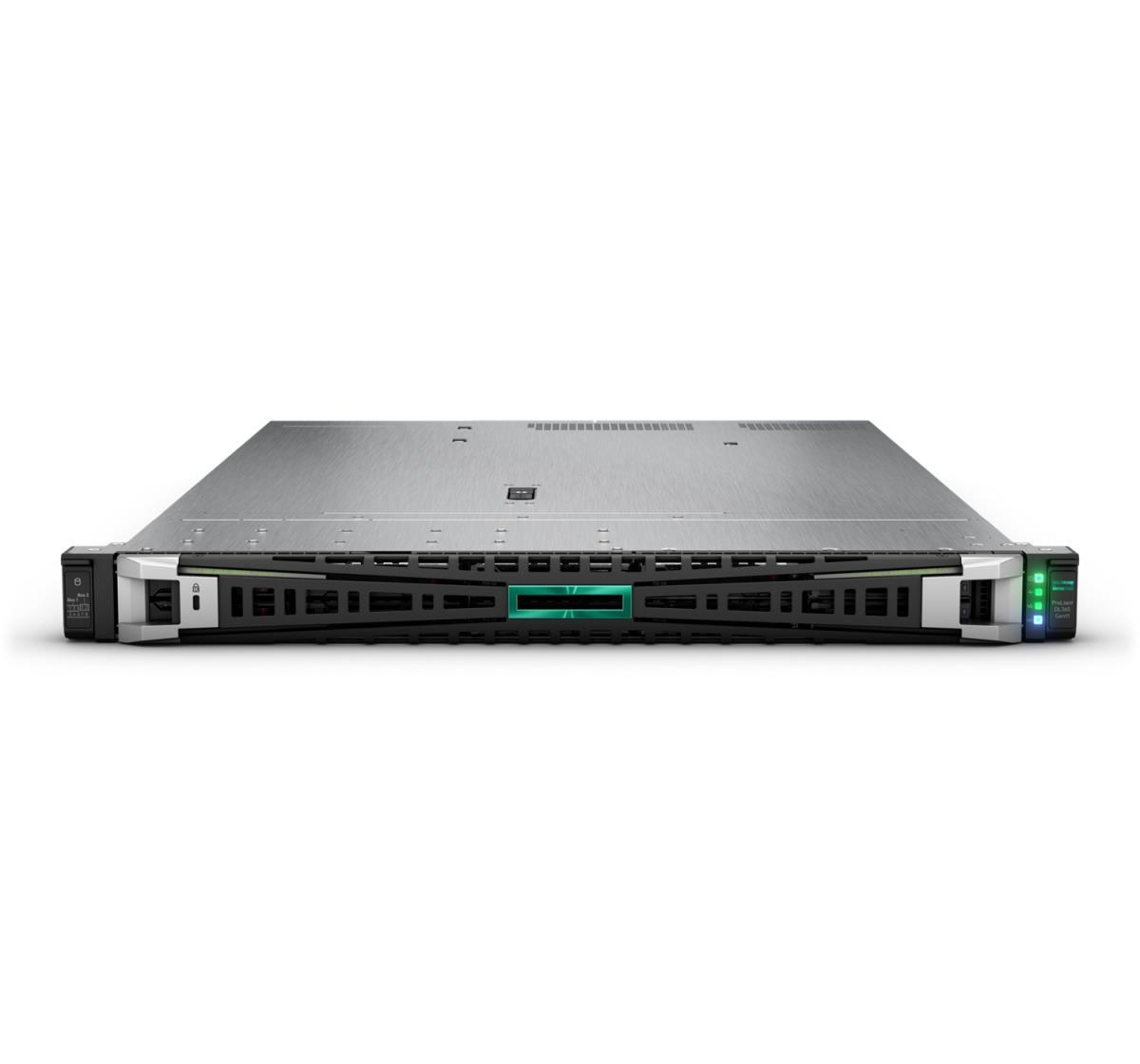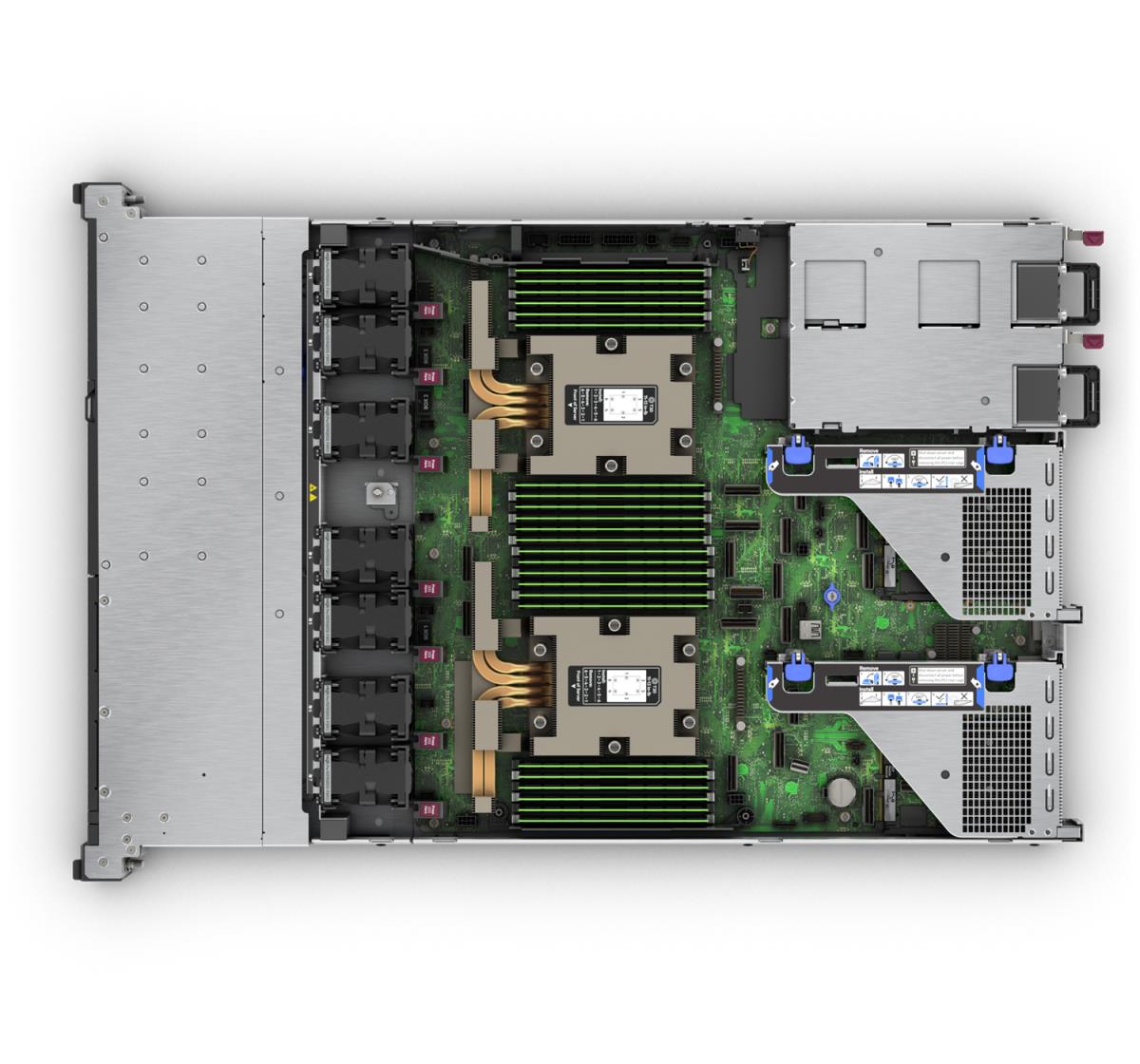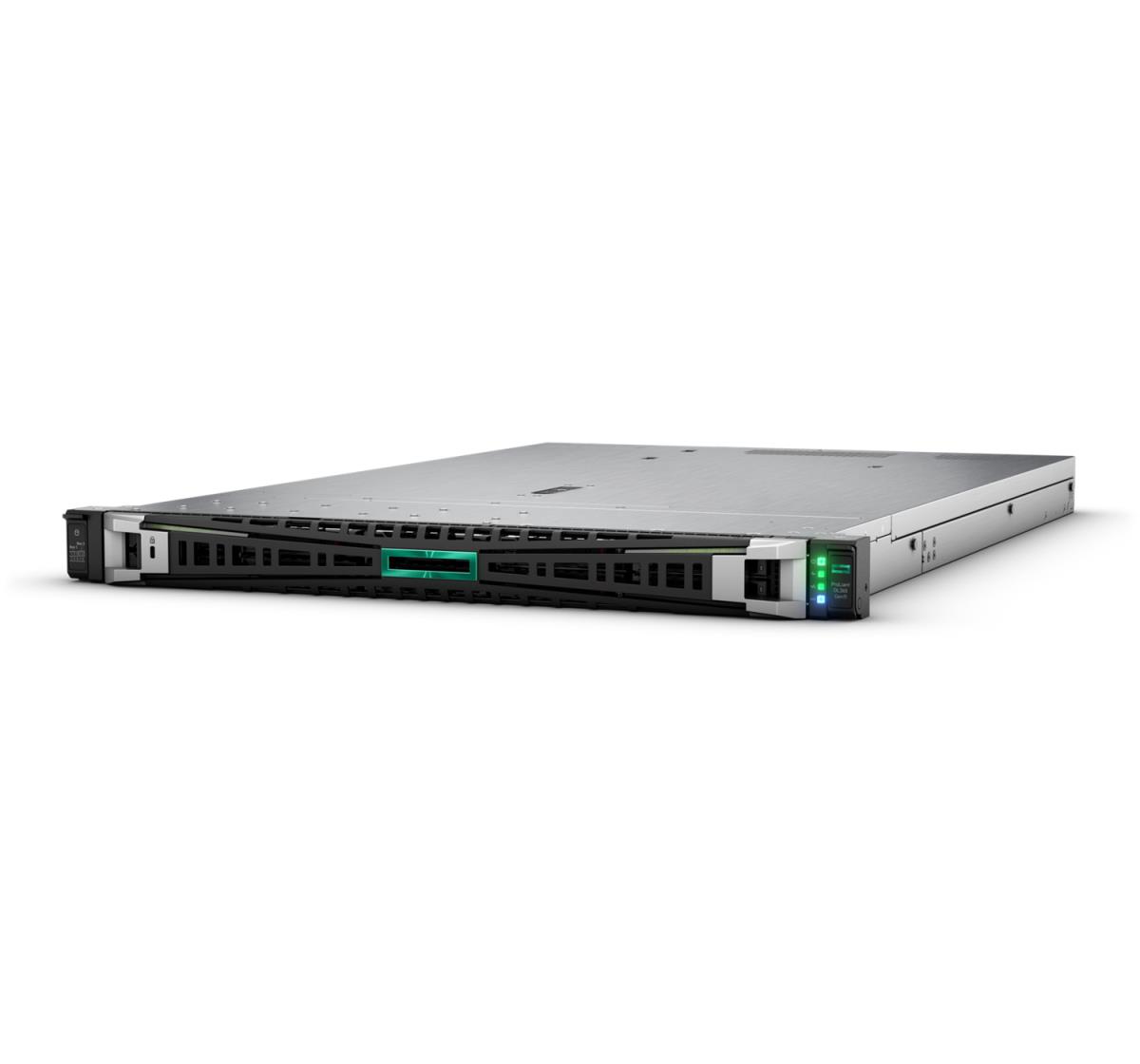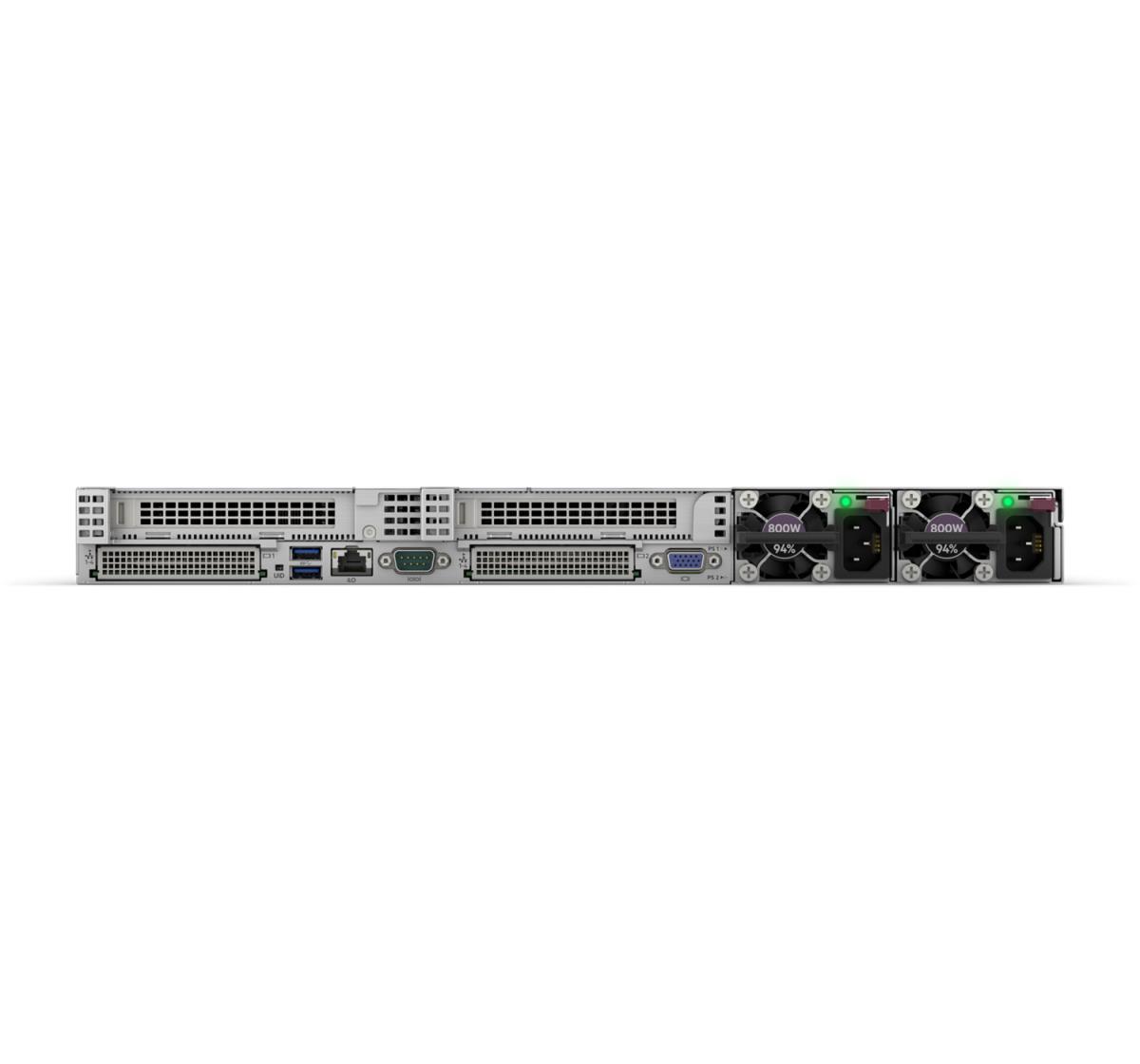 Hewlett-Packard Enterprise ProLiant DL345 Gen11 2U 8SFF x4 NVMe Tri-Mode Cable Kit
Hewlett-Packard Enterprise ProLiant DL345 Gen11 2U 8SFF x4 NVMe Tri-Mode Cable Kit
For personal help or faster delivery
+32 2 558 30 00
Are you looking for a scalable, compute-dense solution for high-performance workloads such as VDI, EDA, or CAD?
The HPE ProLiant DL365 Gen11 server is a rack-optimized 1U 2P dense solution that delivers exceptional compute performance, upgraded high-speed data transfer rate and memory depth at 2P compute capability. Powered by 4th Generation AMD EPYC™ Processors with up to 96 cores, increased memory bandwidth, high-speed PCIe Gen5 I/O, Enterprise and Data Center SSD Form Factor (EDSFF) and GPU1, the HPE ProLiant DL365 Gen11 server is a superb rack-optimized, 1U 2P, dense solution.
Enhanced security features with the HPE silicon root of trust are built into the firmware, creating a digital fingerprint for the AMD Secure Processor to validate safe operation prior to boot.
The HPE ProLiant DL365 Gen11 server is an excellent choice for those who require compute density with built-in security and flexibility.
Features
Intuitive Cloud Operating Experience: Simple, Self-service, and Automated
- HPE ProLiant DL365 Gen11 servers are engineered for your hybrid world. The HPE ProLiant Gen11 servers simplify the way you control your business’s compute—from edge to cloud—with a cloud operating experience.
- Transform business operations and pivot your team from reactive to proactive with global visibility and insight through a self-service console.
- Automate tasks for efficiency in deployment and instant scalability for seamless, simplified support and lifecycle management, reducing tasks and shortening maintenance windows.
- These experiences are engineered and built into all HPE ProLiant Gen11 servers, whether purchased as physical servers or consumed as-a-service using HPE GreenLake as your compute and storage demands grow.
- Simplify and secure server management from edge to cloud with HPE GreenLake for Compute Ops Management. HPE GreenLake for Compute Ops Management is an as-a-service compute management experience that delivers greater simplicity, agility, and speed across your entire compute landscape, globally.
Trusted Security by Design: Uncompromising, Fundamental, and Protected
- The HPE ProLiant DL365 Gen11 server is tied into the silicon root of trust and the AMD Secure Processor, a dedicated security processor embedded in the AMD EPYC system on a chip (SoC), to manage secure boot, memory encryption, and secure virtualization.
- HPE ProLiant Gen11 servers use the silicon root of trust to anchor the firmware of an HPE ASIC, creating an immutable fingerprint for the AMD Secure Processor that must be matched exactly before the server will boot. This helps ensure malicious code is contained and healthy servers are protected.
- HPE ProLiant Gen11 servers continuously protect healthy servers at the edge by providing rapid detection of security-compromised servers, even to the point of not allowing them to boot if it identifies and contains malicious code, with IDevID certificates installed by default.
- HPE ProLiant Gen11 servers provide automated recovery from a security event, including restoration of validated firmware, and facilitating recovery of the operating system, application, and data connections, providing a fast path to bring a server back online and into normal operations.
- From silicon to software, from factory to cloud, and from generation to generation, HPE ProLiant Gen11 is engineered with a fundamental security approach to defend against increasingly complex threats through an uncompromising commitment to constant security advancements that are built into our DNA.
Customized Performance for your Workloads: Accelerated, Open, and Efficient
- Harness major computer performance. The HPE ProLiant DL365 Gen11 server is powered by the 4th Generation AMD EPYC™ Processors with next-generation 5nm technology that supports up to 96 cores, 400W, and 384 MB of L3 cache.
- Advanced data transfer rates and higher network speeds from the PCIe Gen5 serial expansion bus, with up to 2x16 PCIe Gen5 and two OCP slots, improve I/O throughput and reduce latency.
- 12 DIMM channels per processor for up to 6 TB total DDR5 memory with increased memory bandwidth and performance, and lower power requirements.
- Provide real-time operational feedback on server performance plus recommendations for fine-tuning BIOS settings to customize for changing business needs.
Results 0
- Reviews
- Write Review
- Questions and Answers
- Ask Question




















 FREE Shipping.
FREE Shipping.

